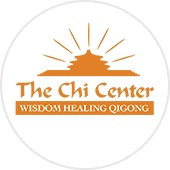As April unfolds, we find ourselves in the midst of Stress Awareness Month, a time dedicated to raising awareness about the impact of stress on our mental, emotional, and physical well-being.
Everyone experiences stress here and there, as it’s a natural response to challenging or demanding situations. However, when stress becomes chronic (long-lasting), it can significantly impede our well-being and have detrimental effects on various aspects of our lives.
Chronic stress can contribute to various issues, such as anxiety, depression, irritability, sleep disturbances, and serious illnesses like heart disease and hypertension.[*] It can also affect our performance at work or school, negatively impact our relationships, and lead to unhealthy coping mechanisms like substance abuse or overeating.
Fortunately, with healthy doses of self-care, stress can be tamed. In this article, we’ll explore five holistic stress management practices you can incorporate into your daily routine during Stress Awareness Month and beyond.
Yoga
Rooted in the union of mind, body, and spirit, the ancient practice of yoga offers a holistic approach to managing stress, promoting relaxation, and fostering inner peace.
Practicing yoga involves a combination of physical postures (asanas) and breath control (pranayama), which work in harmony to help release tension, improve focus, and cultivate mindfulness. As you stretch and strengthen your body through various asanas, you encourage the release of stress-induced muscle tension. Pranayama techniques, such as deep breathing exercises, help to activate the body’s relaxation response, reducing stress hormone levels and calming the mind.[*]
In fact, studies have shown that regularly practicing yoga can lower blood pressure, improve sleep quality, and decrease symptoms of anxiety and depression.[*][*][*]
Furthermore, as you become more attuned to your body and breath, you develop a greater sense of self-awareness, allowing you to better recognize and respond to stressors in a healthier manner.
Consider joining a local yoga class or exploring online resources to begin your journey toward a more balanced and stress-free life. With a variety of yoga styles available, ranging from gentle restorative practices to more vigorous, dynamic flows, you’re sure to find a form of yoga that resonates with your unique needs and preferences.
Meditation
Meditation is an ancient practice that has gained widespread recognition for its remarkable ability to alleviate stress and promote a sense of inner calm and clarity. By training the mind to focus on the present moment and observe thoughts and emotions without judgment, meditation helps break the rumination and worry cycle that often accompanies stress.
Incorporating meditation into your daily routine, even if just for a few minutes, can have profound positive effects on your ability to manage stress. Research has shown that regularly engaging in meditation can lead to reduced levels of stress hormones, lower blood pressure, and improved mental well-being. Additionally, meditation has been linked to enhanced self-awareness, emotional regulation, and cognitive function, equipping you with the tools to better navigate life’s challenges.[*]
There are various forms of meditation, including mindfulness meditation, loving-kindness meditation, and guided meditation, each offering unique pathways to inner peace and stress relief. Explore various meditation techniques to find one that resonates with you. You may choose to attend a local meditation group, use a meditation app, or simply set aside a few minutes each day to sit in quiet reflection.
Aromatherapy
Aromatherapy is a holistic healing practice that utilizes the power of natural plant extracts, known as essential oils, to promote overall well-being and address various health concerns, including stress. By tapping into our olfactory system, aromatherapy can affect our mood, emotions, and even physiological responses, making it a valuable ally in stress management.
Essential oils, extracted from flowers, leaves, fruits, and other parts of plants, possess unique chemical compositions that can influence our nervous system, promoting relaxation and reducing the effects of stress. Some popular essential oils for stress relief include lavender, bergamot, chamomile, and ylang-ylang, each offering a distinct aroma with soothing properties.[*][*][*]
Aromatherapy can be incorporated into your stress-reduction routine in various ways, such as diffusing essential oils in your living space, adding a few drops to a warm bath, or applying diluted oils topically through massage or rollerballs. By engaging your sense of smell, aromatherapy helps to create a calming environment that encourages relaxation and supports emotional balance.
Laughter
Stress relief from laughter is no joke. The act of laughing encourages the production of feel-good chemicals like endorphins and serotonin, which support mood regulation. By increasing these chemicals, laughter can help to counterbalance the effects of stress hormones, such as cortisol and adrenaline, creating a sense of relaxation and ease.[*]
Incorporating more laughter into your life can be as simple as spending time with friends and family who bring joy and humor, watching a funny movie or TV show, or attending a local comedy event.
Laughter therapy is another option for those seeking a more structured approach to incorporating laughter into their stress management routine. This practice combines laughter exercises with deep breathing techniques to stimulate laughter and promote relaxation.
Exercise
Regular exercise is not only essential for maintaining physical health, but it also plays a significant role in stress management and mental well-being. Engaging in physical activity, whether it’s a brisk walk, a vigorous workout, or a leisurely bike ride, supports stress relief in several ways:[*]
- Releases endorphins: Exercise releases endorphins, the body’s natural mood-enhancing chemicals that contribute to a sense of happiness and relaxation.
- Lowers tension: Exercise provides an outlet for the physical tension and nervous energy that often accompany stress.
- Promotes better circulation: By promoting better circulation and increasing oxygen flow to the brain, exercise helps improve cognitive function and enhance mental clarity.
- Reduces stress hormones: Exercise has been shown to reduce the production of stress hormones like cortisol while simultaneously increasing the production of neurotransmitters like serotonin and dopamine, which contribute to mood regulation and overall emotional well-being.
Incorporating regular exercise into your daily routine doesn’t have to be complicated or time-consuming. Even short bursts of activity, such as a ten-minute walk or a quick at-home workout, can provide significant stress-relieving benefits. Choose activities you enjoy and are likely to stick with, whether it’s swimming, dancing, hiking, or team sports.
Take the First Step Toward Stress Relief Today
As we navigate modern life’s complexities, prioritizing stress management and self-care is crucial. By incorporating holistic practices like yoga, meditation, aromatherapy, laughter, and exercise into your daily routine, you’ll be well on your way to cultivating a more balanced and resilient lifestyle.
If you’re looking for a way to stay on top of your self-care and overall health, consider becoming a Knew Health member. Not only do our members receive free telemedicine appointments to promptly address general health concerns, but also free health coaching sessions, where you can work on establishing stress management techniques.
Knew Health effectively manages costs through price transparency and medical cost sharing, ensuring you receive the best quality care at the most reasonable cost.
Embrace the power of holistic self-care this Stress Awareness Month, and unlock the door to a vibrant life filled with joy and tranquility.









































